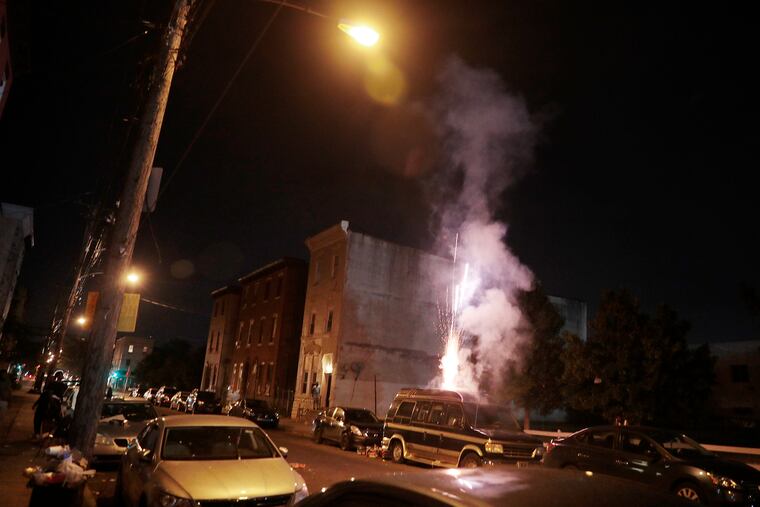Fireworks injuries are on the rise among teens and young adults, and Philly physicians are bracing for more
The rate of fireworks injuries is highest among those aged 15 to 19.

On just her second shift in charge of the emergency room at St. Christopher’s Hospital for Children, Lauren Carr steeled herself for a trial by fireworks.
It was Fourth of July weekend in 2020 — the first summer of the COVID-19 pandemic, and just a few weeks after the murder of George Floyd — and the newly promoted attending physician worried that tensions in the community were higher than usual.
Her instinct was right. Soon after dinnertime, police burst through the doors of the North Philadelphia hospital, carrying a boy who had lost fingers on both hands.
“It was like a scene out of a movie,” she said.
In Philadelphia and nationwide, fireworks injuries have declined somewhat since that tumultuous summer, according to state and federal data. But the toll remains grim, especially among teenagers and young adults, according to the latest figures from the U.S. Consumer Product Safety Commission.
Last year, 1,300 people ages 15 to 19 were injured by fireworks nationwide in 30-day time frame around the July Fourth holiday. That amounts to six out of every 100,000 people, one of the highest rates in recent years, according to the agency.
At least 11 people died of fireworks injuries that year, including five ages 21 or under, the commission said. Among them was an 11-year-old Indiana boy who was holding a mortar-like device above his head when it went off, fracturing his skull.
Weeks in the hospital
No fireworks deaths have occurred in Philadelphia in recent years.
From 2017 to 2021, 38 city residents were injured so badly by the explosive devices that they were admitted to the hospital, according to an Inquirer analysis of data from the Pennsylvania Health Care Cost Containment Council.
Across Pennsylvania, there were 179 fireworks-related hospitalizations during that period.
Injuries included a litany of blown-off fingers, contusions, and burns so severe that they needed skin grafts, requiring weeks-long hospital stays in some cases. In 2018, one Lehigh County woman with fireworks injuries stayed in the hospital for more than three months.
When children are burned by fireworks, they often are taken to St. Christopher’s, which has the only pediatric burn unit between New York and Baltimore.
In the July 2020 case, the more immediate concern was the boy’s missing fingers, said Carr, the attending physician. She and her colleagues quickly stabilized the patient, who eventually was fitted with prosthetics, she said.
As a pediatric emergency medicine specialist, Carr had years of training to handle such cases.
But emotionally, she said, it never gets easier. Every year since then, she hears the sirens in early July and she starts to feel tense.
“My shoulders are just so tight, listening to those sirens,” she said.
Carr is not working on the holiday this year. But she will be at the hospital later in the week, and is prepared for the worst.
How to prevent fireworks injuries
Federal and state health officials have a variety of tips to stay safe this weekend:
Never allow young children to play with or set off fireworks — including sparklers, which can reach temperatures of 2,000 degrees Fahrenheit.
Keep a bucket of water or a garden hose on hand, and douse used fireworks thoroughly before throwing them away.
Use only fireworks that are labeled for consumer use, not the professional-grade variety.
Never use fireworks while impaired by alcohol or drugs.
Place fireworks on a flat, outdoor surface, and light them one at a time.
Never try to relight fireworks that fail to go off.